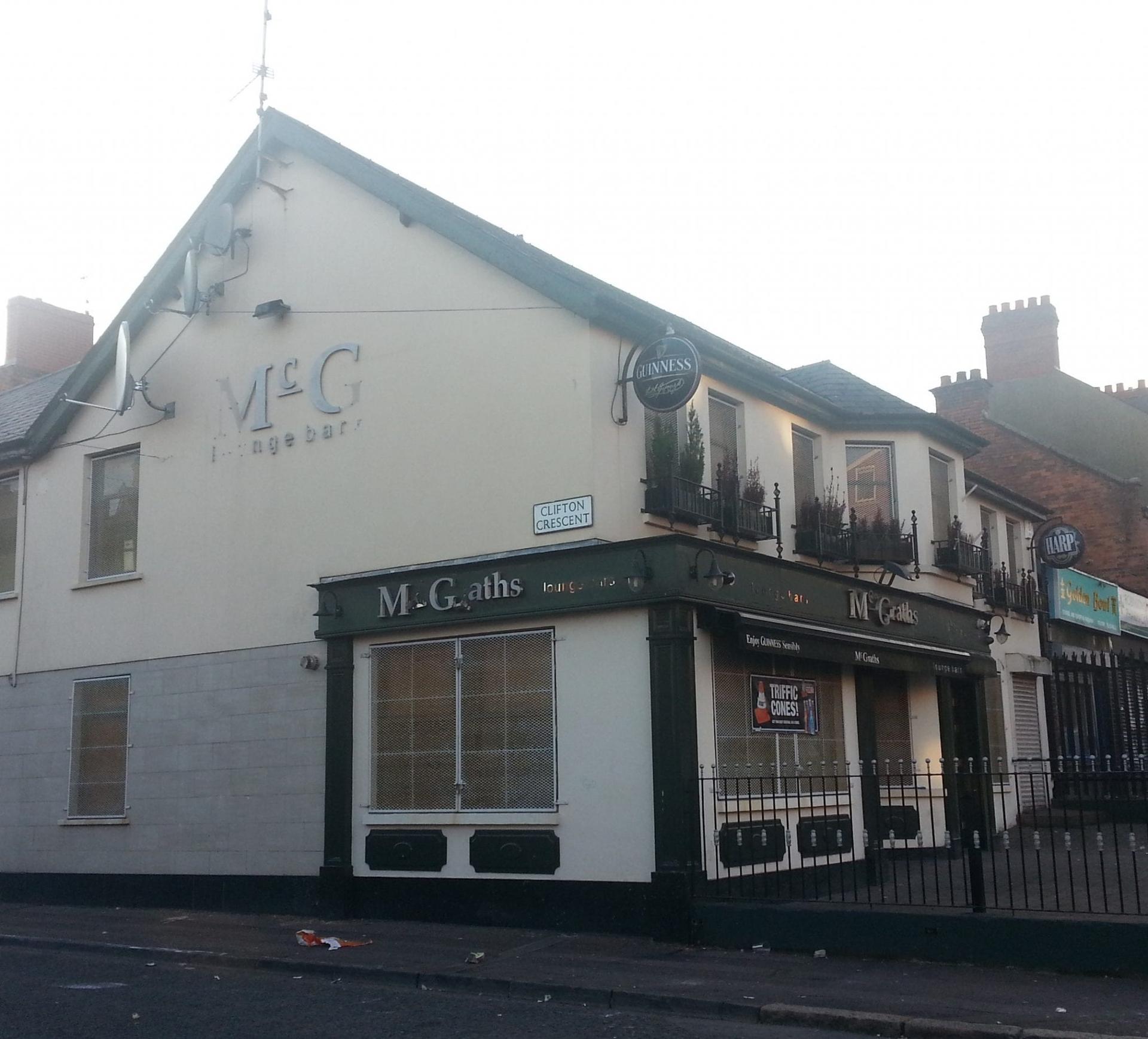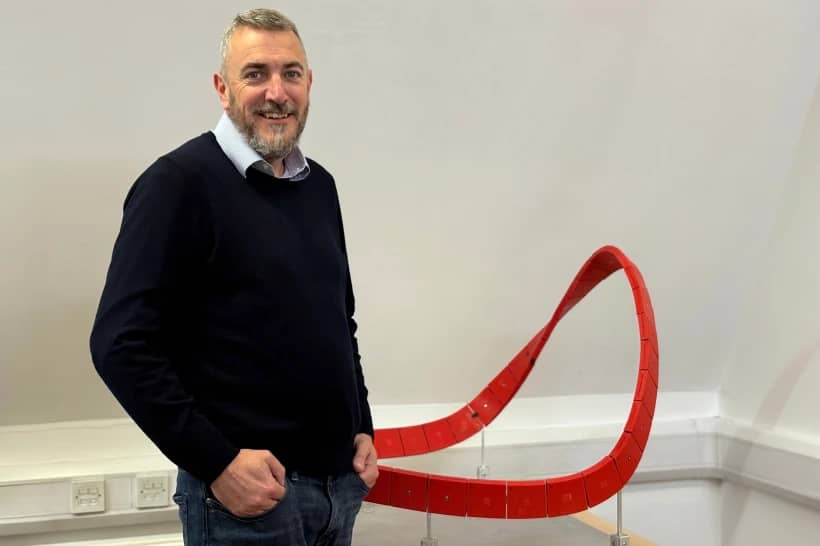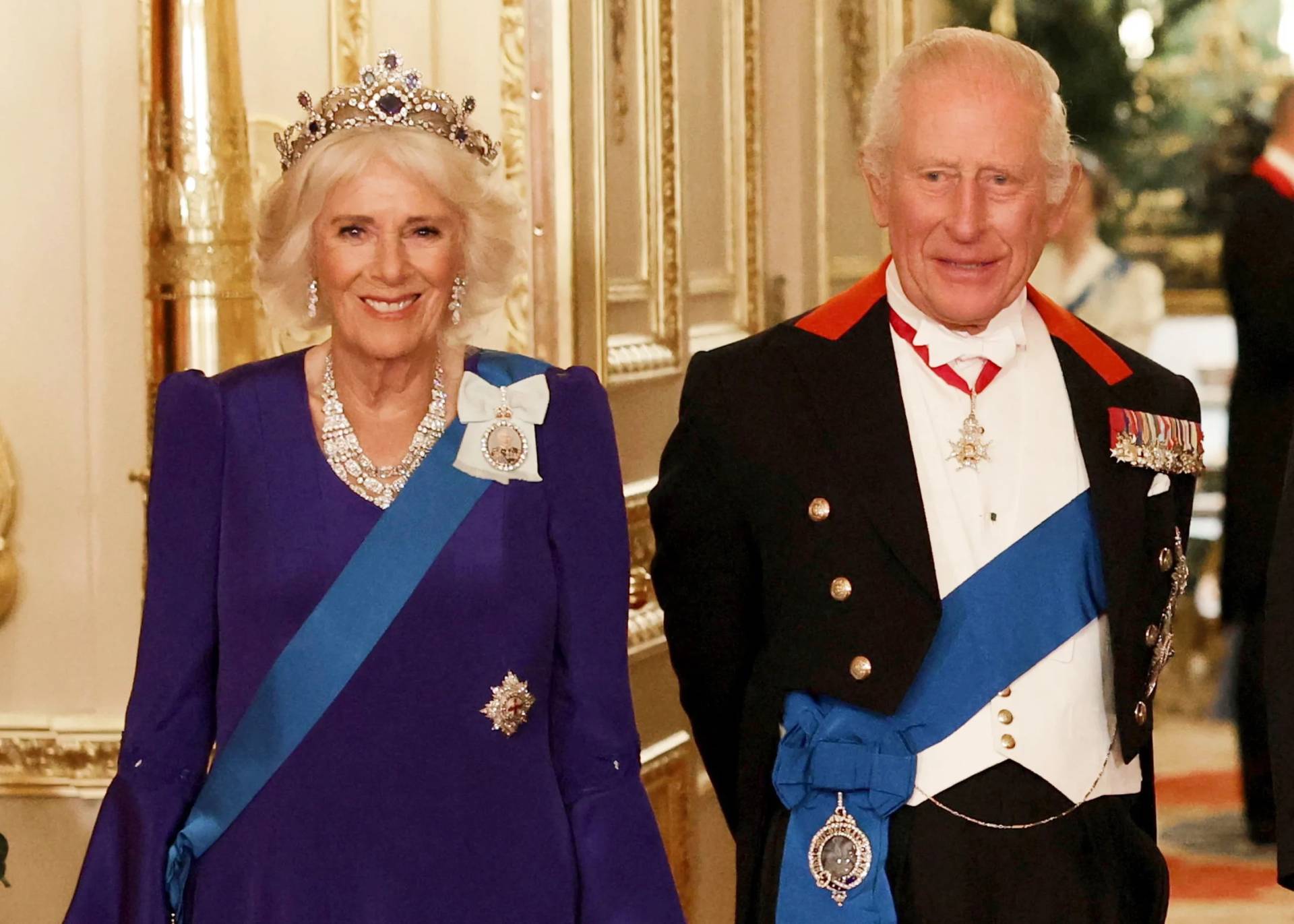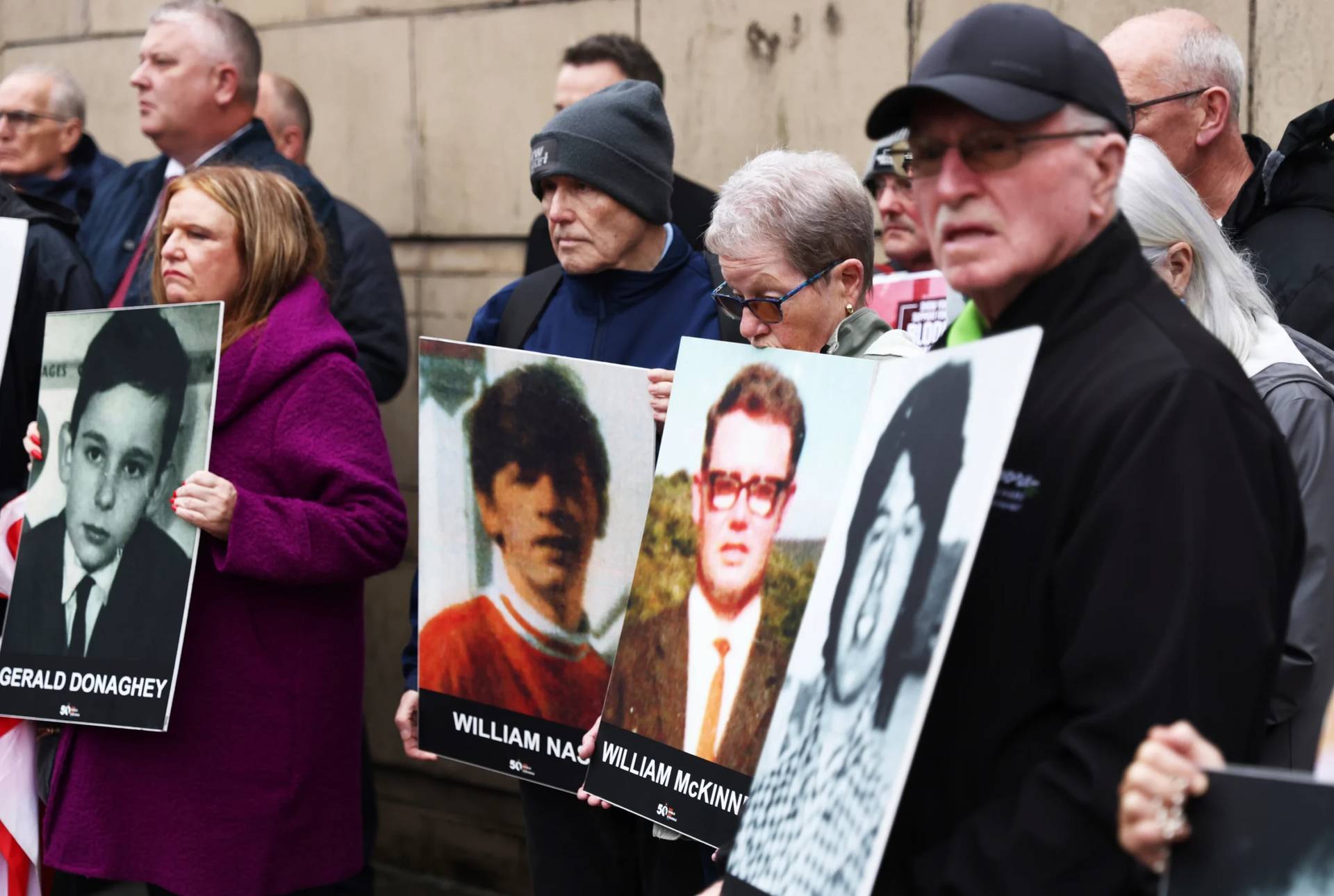BELFAST – For years, the New Lodge neighborhood was a Catholic enclave in Belfast, Northern Ireland, surrounded by an often hostile Protestant majority. Today, as the last vestiges of that once-ferocious Catholic identity seem to be disappearing, a new generation looks to the future unburdened by the struggles of the past.
But for the midday usuals at a local pub called McGrath’s, memories of the neighborhood’s violent past are still vivid.
Entering the dimly lit and wood-covered bar feels like stepping back in time. Its clients fill breaks between a pint and smoking cigarettes with watching horse races on TV. An elderly man proudly takes out an aging flip-phone to show pictures of himself with an AK-47, as well as of his living room covered with Basque insignia.
“They fought the f****n’ colonialists, and so did we!” he said with a grin.
Another man, tall and of strong build, entered the pub exchanging greetings and laughs with its clients. He also was very familiar with the brutal murders that used to bloody these streets.
“My friend was butchered, cut into pieces, and his remains were left right over there,” he said pointing at the entrance of a quaint looking red brick building next door.
During “The Troubles,” New Lodge, just north of Belfast’s city center, was a battleground for Irish nationalists, mostly Catholic, and Protestant loyalists. Riots and shootings were frequent events; in February 1973, six Catholics were shot dead as a result of what most Catholics in the area believe was collusion between British security and Unionist paramilitary groups.
During the course of conversation the man alternately referred to himself as “Michael,” then “Andre,” and “Pat,” before finally settling for “Paul Jones.” The muscles in his shoulders and arms remain visible despite being in his mid-fifties, a fact only betrayed by a protruding belly and the deep lines under his eyes and behind his neck.
Jones said he was a firm ultranationalist, and in conversation he hinted at onetime involvement with the IRA, the paramilitary movement promoting Irish nationalism. His gray eyes suggest a violent past, and he semi-proudly claimed that he would face “some trouble” if stopped by local police.
While Catholic-Protestant clashes might have defined Jones’s youth, that’s not the case for his children and grandchildren, he said. His son, for instance, recently chose to settle his family in a house on an infamous Belfast street that once witnessed frequent killings of Catholics.
“My generation couldn’t do it,” Jones said, meaning letting go of the memories such a place beckons. “But I’m glad that my children and grandchildren can.”
He’s familiar with the stories of most of the people living in the neighborhood, and says that many still bear scars of the violent attacks that used to take place in this Catholic alcove.
“Everyone knows me,” he says while waving casually at cars and people passing by.
McGrath’s itself was the background of a shooting carried out by loyalist gunmen on Dec. 31, 1997 which injured 12 people and left one dead. The local police barracks are only a block away from the pub, but Jones claims officers took 20 minutes to respond to the call, suggesting they allowed it to happen.
Religious tensions still exist in this “post-conflict” area. There still is prejudice, especially in terms of employment, towards Catholics in Northern Ireland, including the senior ranks of the police, which are mostly filled with simpathizers with the unionists who rose through the ranks over the years.
Politics, divided here into “Green,” meaning Catholic, and “Orange,” meaning Protestant, are still given to religious rhetoric and the settling of old scores. Jones views politicians with the same skepticism of someone used to living on the peripheries of society, claiming that the damage they caused makes an apology not enough.
“They need to repent,” he said, his finger pointing toward the sky.
Yet despite those divisions, Belfast today is a very different reality from that of only 30 years ago.
“You can’t put it all down to green and orange,” Jones explains in terms of understanding what motivates politics in the area.
Brexit and the advantages of being a part of the European Union are listed as main reasons to wish for a unified Ireland for many in the region. Secularization has weakened religious sentiment and smoothed differences between confessional beliefs.
New Lodge, once a place where people literally would die because of their faith, today feels different. Many of the old-time Catholics have left for the suburbs, causing a depopulation made worse by the fact that New Lodge is listed as the fifth most-deprived ward in the region.
Just a few blocks away, the fabled St. Malachy’s Seminary recently declared that it will close in September 185 years after its founding. The last seminary in Northern Ireland will be used for other purposes, and its three remaining seminarians will have to go elsewhere.
Something about the seminary’s overgrown greenery and quiet desolation on a rainy August afternoon speaks to the slow disappearance of religion as a driver of history in Belfast today.
For Jones, it’s a positive sign that young generations are for the most part unmotivated by the sectarianism of the past. It’s worth it for the peace, he said, “we wouldn’t want to go back to how things used to be.”
Catholicism in Northern Ireland has in no way disappeared, though its relevance in political debate has diminished substantially. Some believe that a visit by Pope Francis could have sent a strong message to Catholics in the region and at least symbolically brought closure to the divisions that still underline the society.
Not everybody here, however, agrees.
“We don’t deserve to have the pope,” a taxi driver bluntly said while skipping his car through the damp streets of Belfast. “Why would he come and be troubled by all of this?”
Still, when asked whether he would travel to Dublin for the pope’s visit for the World Meeting of Families Aug. 25-26, he recalled memories of seeing St. Pope John Paul II in 1979 with his family.
“Maybe I’ll go down to Dublin,” he said shrugging his shoulders … “even though, you know, we have our disputes with the Catholic Church.”
















